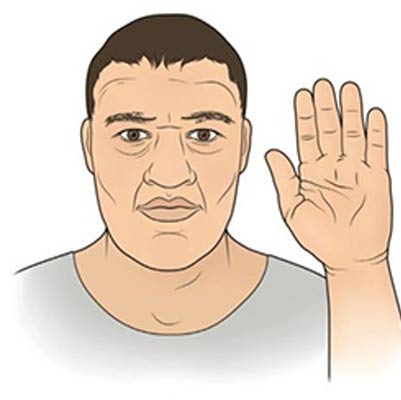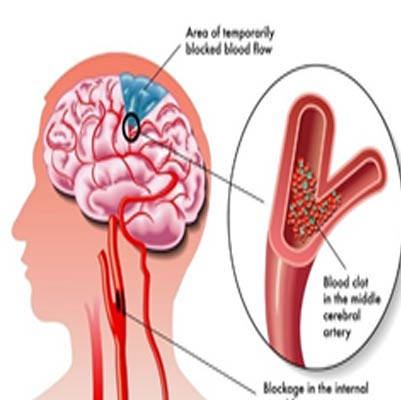Acromegaly
Acromegaly – An Overview
Acromegaly is a rare hormonal disorder that occurs when the pituitary gland produces excessive growth hormone (GH) in adulthood. This hormonal imbalance gradually affects bones, muscles, skin, and internal organs, leading to noticeable physical changes and potential health complications.
The condition most commonly develops due to a pituitary adenoma (tumor in the pituitary gland). Since the pituitary gland regulates many body functions, excess GH disturbs the body’s natural balance.
Symptoms of Acromegaly
-
Enlargement of jaw and tongue
-
Gaps developing between teeth
-
More prominent brow or forehead
-
Swollen hands and enlarged feet
-
Coarse, oily, or thickened skin
-
Appearance of multiple skin tags
-
Changes in facial structure over time
Spaks Homeopathy Approach:
Homeopathy focuses on the root cause and constitutional treatment. Our medicines help in:
Controlling abnormal hormonal activity
Relieving discomfort and associated complications
Improving energy levels & overall well-being
Preventing disease progression—safely and naturally

Attention disorders
Adjustment (Attention) Disorders – Spaks Homeopathy Overview
Adjustment disorders are stress-related emotional or behavioral conditions. They occur when a person reacts more strongly to a stressful event than is usually expected, and this stress begins to interfere with daily life, relationships, work, or studies.
Common triggers include:
-
Workplace pressure or job loss
-
Academic challenges
-
Serious illness
-
Death of a loved one
-
Major life changes (marriage, relocation, separation, etc.)
Most people gradually adapt to life changes within a few months. However, in adjustment disorder, emotional or behavioral responses remain intense, leading to anxiety, sadness, or even depression.
Symptoms of Adjustment Disorder
-
Persistent sadness or hopelessness
-
Losing interest in activities once enjoyed
-
Frequent crying spells
-
Feeling worried, nervous, or restless
-
Sleep problems (insomnia or disturbed sleep)
-
Difficulty concentrating
-
Feeling overwhelmed and unable to cope
-
Withdrawal from family or social interactions
-
Suicidal thoughts or behavior in severe cases
Spaks Homeopathy Approach
At Spaks, gentle and safe remedies are chosen to:
Relieve stress and anxiety naturally
Improve sleep and concentration
Restore emotional balance
Strengthen resilience to life’s challenges
Prevent long-term complications like depression
With personalized care, homeopathy helps bring calmness, clarity, and emotional stability — without side effects.
Would you like me to also prepare a Causes – Symptoms – Homeopathic Management chart for this? It would be perfect for a clinic handout or social media post.

Adjustment disorders
Adjustment Disorder – An Overview
Adjustment Disorder is a condition that develops when a person has difficulty coping with or adjusting to a stressful life event. Symptoms usually appear during or shortly after the stressor and may last up to six months. However, if the stress continues, symptoms can also persist longer.
Some individuals may have just one symptom, while others may experience a combination of emotional and behavioral changes.
Mental & Emotional Symptoms of Adjustment Disorder
-
Rebellious or impulsive actions
-
Anxiety or nervousness
-
Feelings of sadness, hopelessness, or being trapped
-
Frequent crying spells
-
Social withdrawal or isolation
-
Difficulty in concentrating
-
Loss of self-confidence or self-esteem
-
In severe cases, suicidal thoughts
Spaks Homeopathy Approach:
Homeopathy works gently on the mind and emotions, helping patients to:
Relieve anxiety, sadness, and hopelessness
Improve coping ability with stress
Restore calmness and emotional balance
Prevent long-term mental health complications
Heal naturally without side effects

Amnesia
Amnesia – An Overview
Amnesia is a rare neurological condition that causes partial or complete memory loss. Unlike simple forgetfulness, amnesia involves a large-scale loss of memories that should normally be retained.
People with amnesia often find it difficult to:
-
Recall past experiences
-
Learn and store new information
-
Imagine or plan for the future (since future scenarios are built from past memories)
Memory involves highly complex brain processes, and science still doesn’t fully understand how memories are stored and retrieved.
Symptoms of Amnesia
-
Difficulty learning new information
-
Inability to recall past events or familiar information
-
False memories (confabulation) – completely invented or misplaced real memories
-
Confusion or disorientation
-
Problems with short-term memory
-
Partial or total memory loss
-
Trouble recognizing familiar faces or places
-
Neurological signs like tremors or uncoordinated movements
Spaks Homeopathy Approach
Homeopathy offers a gentle and holistic approach to support brain and nerve health. Treatment aims to:
Improve memory retention and recall
Reduce confusion and disorientation
Strengthen overall brain function
Address underlying neurological weakness
Provide safe, long-term recovery without side effects

Anorexia
Anorexia Nervosa – An Overview
Anorexia nervosa, commonly called anorexia, is a serious eating disorder characterized by abnormally low body weight, an intense fear of gaining weight, and a distorted perception of body image.
People with anorexia place extreme importance on controlling their weight and body shape, often using harmful methods that interfere with their daily lives.
To avoid weight gain, individuals may:
-
Severely restrict food intake
-
Induce vomiting after meals
-
Misuse laxatives, diuretics, diet pills, or enemas
-
Engage in excessive exercise
Even after losing significant weight, they continue to fear weight gain and may not recognize how dangerously underweight they are.
Signs & Symptoms of Anorexia Nervosa
-
Chronic restrictive eating or extreme dieting
-
Rapid weight loss or being severely underweight/emaciated
-
Obsession with calories, fat content, and body image
-
Unusual eating habits (e.g., cutting food into tiny pieces, eating alone, hiding food)
-
Continued fixation on food and cooking
-
Amenorrhea (loss of menstrual periods) in females
-
Symptoms of depression, anxiety, or social withdrawal
-
Development of fine body hair (lanugo)
-
Feeling unusually cold
-
Hair loss or thinning scalp hair
Spaks Homeopathy Approach
At Spaks Homeopathy, treatment focuses on:
Improving appetite and digestion naturally
Restoring healthy weight and body balance
Reducing anxiety, depression, and obsessive thoughts
Supporting hormonal balance in females
Strengthening overall mental and physical well-being—without side effects

Bipolar disorder,
Overview
Bipolar disorder is a mental health condition that causes extreme shifts in mood, energy, and activity levels. These mood changes can range from emotional highs (mania or hypomania) to extreme lows (depression).
During a depressive phase, a person may feel sad, hopeless, or lose interest in daily activities. In contrast, during a manic or hypomanic phase, one may feel overly happy, energetic, or unusually irritable.
Symptoms
Manic or Hypomanic Symptoms:
-
Abnormally elevated, excited, or irritable mood
-
Increased energy, restlessness, or activity
-
Exaggerated self-confidence or sense of euphoria
-
Reduced need for sleep
-
Excessive talkativeness
-
Racing thoughts
-
Difficulty concentrating or being easily distracted
-
Risky behavior (such as overspending, reckless driving, or unsafe sexual activities)
Depressive Symptoms:
-
Persistent sadness or hopelessness
-
Loss of interest or pleasure in usual activities
-
Low energy or fatigue
-
Sleep disturbances (too much or too little sleep)
-
Difficulty concentrating
-
Feelings of worthlessness or guilt
-
Suicidal thoughts or behaviors
Would you like me to also add homeopathic treatment options (from Spaks Homeopathy style) to this overview so it matches your other health condition notes?

Brain Hemorrhage
Brain Hemorrhage – Spaks Homeopathy
A brain hemorrhage is a type of bleeding that occurs in or around the brain. It is a serious medical condition and can be life-threatening.
There are different types of brain hemorrhage:
-
Intracranial hemorrhage – bleeding that occurs inside the skull.
-
Intracerebral hemorrhage – bleeding within the brain tissue itself.
-
Subarachnoid hemorrhage – bleeding in the space between the brain and the thin tissue covering it.
These conditions require urgent medical attention, as they can damage brain cells and impair vital functions.
Symptoms of Brain Hemorrhage
-
Sudden, severe headache
-
Numbness, tingling, weakness, or dysfunction of the face, arm, or leg, often on one side of the body
-
Difficulty swallowing or problems with vision
-
Loss of balance or coordination
-
Trouble understanding, speaking, reading, or writing
-
Altered consciousness, marked by sleepiness, stupor, or coma
Spaks Homeopathy Care:
Along with emergency treatment, homeopathy can support recovery, helping to manage after-effects like weakness, speech difficulty, memory loss, and overall brain health. Remedies are chosen based on individual symptoms to gently aid healing.

Cerebral palsy
Overview
Cerebral palsy is a neurological condition that affects movement, muscle tone, and posture. It occurs due to damage or abnormal development of the immature brain, most commonly before birth.
This disorder often results in difficulties such as abnormal reflexes, muscle stiffness or looseness, unusual posture, and involuntary movements. Some individuals may also face problems with swallowing, eye coordination, and limited range of motion in joints due to muscle tightness.
Symptoms
Common signs and symptoms of cerebral palsy include:
-
Abnormal muscle tone (too stiff or too floppy)
-
Stiff muscles with exaggerated reflexes (spasticity)
-
Stiff muscles with normal reflexes (rigidity)
-
Poor muscle coordination (ataxia)
-
Involuntary movements or tremors
-
Slow, twisting movements (athetosis)
-
Difficulty swallowing or excessive drooling
-
Problems with sucking or eating
-
Speech delays or difficulty speaking
-
Trouble with fine motor skills (e.g., holding a spoon, picking up small objects)
-
Seizures
